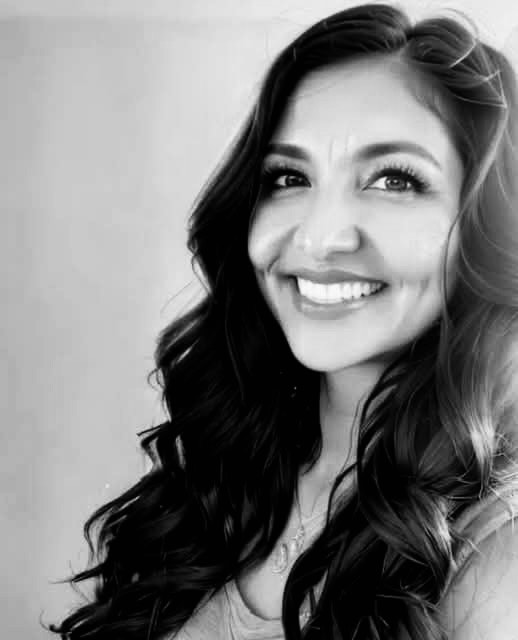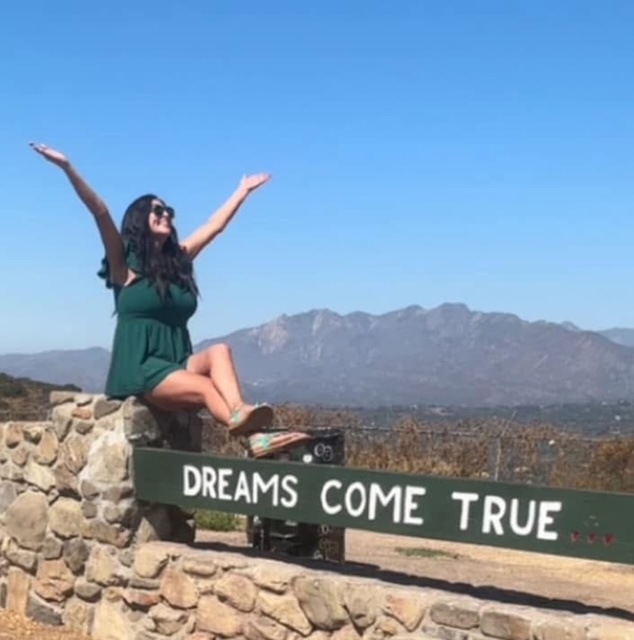
Who is Diane Thomassin?
I write scripts. I don’t just write words on a page, I search for the treasure in people’s stories. Especially survivor stories! When you have been through some stuff, (and we’ve ALL been through some stuff) sometimes our brains locks that pain away in a vault we never touch. But a good screenwriter knows how to open that vault. Screenwriting for me isn’t just about entertainment. It’s about taking human experience and translating it, so others can feel it too. When I help survivors tell their stories, I say, “Your pain matters, but more importantly, your resilience matters!” Sometimes we forget we have resilience and we are walking around acting like we can’t handle anything, when our ancestors survived everything. I want to remind everyone of that strength in their DNA through story. I believe in transforming pain into art and pain into triumph.
Do you remember the exact moment you fell in love with cinema?
Yeah. I was 8 years old watching Star Wars. Just sitting there, my first time in a movie theater with no concept of what filmmaking even was, and suddenly there’s this whole universe happening in front of me. But then I fell in love with cinema all over again in college, taking these film appreciation classes. It’s like being in a relationship with someone for years and then one day they tell you this deep thing about their childhood or you discover their hidden talent and you go, “Oh wow, I’m falling for you all over again but deeper now.” It’s a renewed appreciation and respect. I learned film history, which is basically watching how humans figured out how to tell stories with this technology. Silent films, man… they had to tell the whole story with just images. No dialogue to bail them out. Buster Keaton could make you laugh and break your heart without saying a word. That’s pure cinema. The bad thing about falling in love with cinema is it ruins you for normal viewing. You can’t just watch a movie anymore. You’re seeing all the choices, all the invisible work. It’s like being a chef and tasting a sauce and going, “Oh, they used tarragon in this.” Regular people just enjoy the sauce. You’re cursed with film knowledge.
Tell us about your project “The Evolution of Low Joe”.
“The Evolution of Low Joe.” This script is a what I call a backwards hero’s journey.
In your typical hero’s journey, the protagonist starts in the ordinary world, gets a call to adventure, faces trials, and returns transformed. But Low Joe? He started at the top. He’s already a successful rapper with money, fame and he can have anything or anyone he wants. His journey is about falling DOWN before he can truly rise up. Low Joe has to lose everything he thinks matters to find what really matters. He hits rock bottom before he can look up and see the light. This is the point, sometimes we have to lose our false identity before we can find our true self. Low Joe was a walking wound and that caused him to hurt the people he loved and even those he didn’t love. His open wound was bleeding on everyone. This is what unhealed trauma does to people. Enter Alma. She understands love and redemption and she believes in Joe. The script should call us to ask ourselves…What’s real power? Is it controlling others through fear like Low Joe did at first? Or is it having the courage to be vulnerable, to face your demons, and to choose love even when it’s hard? That’s the evolution from Low Joe to WHOLE Joe.

Which Director inspires you the most?
Sofia Coppola stands out to me because she understands life in a way that few filmmakers get. She knows that life is more than an action movie with things exploding. It’s closer to real life to be sitting in a room, having complicated emotions that are hard to express. The explosion for Sofia is showcasing the human experience. Sofia realized that women in film existed to serve the narrative of male protagonists. So, women in Sofia’s films take center stage to tell their own stories without needing to be a wife or girlfriend or a male fantasy. The stories she tells are naturally small and quiet because that is where life’s best drama unfolds, in these small moments. The industry demands filmmakers to produce obvious and loud content because it seems to believe audiences are like lab rats who need their stimulation increased again and again. But Sofia shows courage by concentrating on the small moments that make up life beyond the fleeting dopamine hits. Like, the glance between people that reveals a complete relationship through its silent exchange. The moment of silence follows when someone speaks words they can’t take back. That’s why she’s so good with actors. She doesn’t need them to explain their psychology through dialogue. She just puts the camera on their face and lets us watch them think. That’s harder than it sounds. Most directors would panic and add a voiceover. Sofia’s doesn’t need the voiceover, her directing is solid.
What do you dislike about the world and what would you change?
We’ve created this weird thing in society where we’re obsessed with our differences and ignore our similarities. It’s like we’re all drowning, and instead of helping each other, we’re arguing about who has the better swimming technique.
We’re the only species that does this. You don’t see a bunch of squirrels forming groups based on tail fluffiness. “Oh, you have a less fluffy tail? Stay on your side of the tree. You are inferior. You don’t deserve to exist .” It’s ridiculous when you think about it.
We need to start treating each other better. What sounds simple as that is actually the hardest thing in the world. Because treating people better means you have to see them as complex as you see yourself. That’s terrifying for too many people. I wish people would stop hating so much and love more.
We need to acknowledge the importance of healing trauma. That’s the thing about humans…we’re all just walking collections of unprocessed experiences pretending we’re fine. “Oh yeah, I watched this horrible thing once when I was seven and never talked about it, but I’m totally fine!” No, you’re not. None of us are. We all have trauma and if we don’t process those feelings, they will come out in a toxic way.
And we stigmatize mental health like it’s some luxury problem. “Oh, you’re sad? Have you tried just… not being sad?” Meanwhile, we’ll spend ten hours researching the best phone case but won’t spend ten minutes figuring out why we keep sabotaging our relationships.
If I could change anything, I’d make us all a little more honest about how broken and similar we all are. Because once you realize everyone else is also terrified and confused, it’s harder to hate them. It’s like being mad at someone for also being caught in the same rainstorm as you.
But we are humans…we’re terrible at accepting simple truths. We’d rather build elaborate systems of denial than just admit we’re all scared animals, pretending we’re fine and trying our best not to die alone.
How do you imagine cinema in 100 years?
There’s probably going to be these virtual reality glasses that we all wear, and the experience will be so immersive that you’ll feel like you’re actually there.
I see diversity in film where all perspectives are given equal time, because right now, we basically get the same seven stories told by the same twelve people. And we pretend that’s the human experience.
I see different opinions respected. Which is funny because we can’t even do that now with low stakes things. People lose their minds over whether a superhero movie is good. Imagine actual challenging content.
The weird thing about cinema in 100 years is that it’ll probably be both more advanced and exactly the same. Because no matter how fancy the technology gets, we’re still telling the same ol’ Hero’s Journey stories about love and death and why we’re here. We’ve been doing that since we were painting buffalos on cave walls. So yeah, we’ll have the amazing technology, but we’ll still be using it to process the fact that we’re conscious animals who know we’re all here on earth for a limited time. That’s the thing about humans…our tools evolve faster than our hearts.
